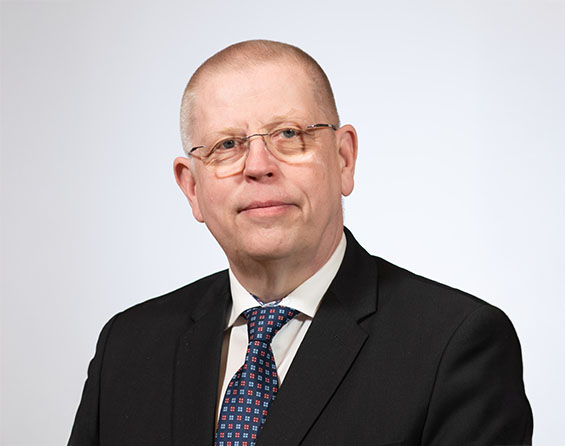
AI Profiileerimine: Peeter Tali
Päevakorrapunkte: 55
1200/1200 profiling (100.0%)
Sõnavõtte kokku: 101
Analüüsi periood: 2024-01-16 - 2025-09-25
Poliitiline positsioon
Poliitiline profiil on läbivalt ja tugevalt väärtuspõhine, keskendudes Eesti rahvuse, keele ja kultuuri säilitamisele ning demokraatia kaitsmisele autoritaarsuse vastu. Kõige silmapaistvam teema on riiklik julgeolek, mis nõuab massiivseid kaitsekulutusi (kuni 5% SKP-st), tehnoloogilist ülekaalu ja otsustavat, proaktiivset tegutsemist. Järjepidevalt nõutakse Kremli vaenuliku mõju tõrjumist Eestis, eriti Moskva Patriarhaadi alluvuses tegutseva kiriku tegevuse viivitamatut lõpetamist ning Venemaa/Valgevene kodanike valimisõiguse piiramist kohalikel valimistel. Seisukohad on järjepidevalt agressiivsed ja kompromissitud, rõhutades vajadust kasutada "keelt, millest idanaaber aru saab" ning toetades nii Ukraina abistamist kui ka bürokraatia vähendamist kaitsevõime tõstmiseks.
Teemade ekspertiis
Poliitiku asjatundlikkus on erakordselt sügav ja järjepidev riigikaitse, sõjalise strateegia ja julgeolekupoliitika valdkondades, hõlmates nii tehnoloogilist innovatsiooni (kosmos, küber, kuus lahinguruumi) kui ka detailset seadusandlust (Kaitseliit, kriisijuhtimine, EL-i menetlused). Ta demonstreerib autoriteeti Venemaa Föderatsiooni geopoliitiliste eesmärkide ja mõjutustegevuse analüüsimisel, kasutades järjekindlalt spetsiifilist terminoloogiat ("hübriidsurve," "imperialistlik tahe") ning viidates konkreetsetele eelarve-, logistika- ja rahvusvahelise õiguse andmetele. Eriti silmapaistev on tema põhjalik teadmine Vene Õigeusu Kiriku (Moskva Patriarhaat) ajaloolisest taustast ja selle seostest Kremli eriteenistustega, mida ta käsitleb järjepidevalt julgeolekuohuna. Lisaks kaitsevaldkonnale näitab ta spetsiifilist pädevust hariduskorralduse ja teadus- ja arendustegevuse rahastamise strateegilistes küsimustes.
Retoorriline stiil
Poliitiku retooriline stiil on valdavalt tõsine, kiireloomuline ja võitluslik, rõhutades pidevalt riiklikke eksistentsiaalseid ohte ja vajadust viivitamatu tegutsemise järele, eriti julgeoleku ja välismõju teemadel. Kuigi esitlusviis on sageli formaalne, ametlik ja tugineb loogilisele argumentatsioonile, eriti seaduseelnõude ja ajalooliste faktide käsitlemisel, on sisu sügavalt emotsionaalne ja moraalne, segades loogilist põhjendust terava hukkamõistuga. Stiili iseloomustab terav, otsekohene ja polariseeriv keelekasutus, kus vastaste ja Venemaa mõju kritiseerimiseks kasutatakse tugevaid, dramaatilisi metafoore ja võrdlusi (nt "džihaadile üles kutsuv organisatsioon," "Orwelli raamatus"), seades kompromissi otsimise sageli kahtluse alla.
Tegevusmustrid
Poliitik on kogu vaadeldud perioodi (2024–2025) jooksul ilmutanud erakordselt tihedat ja järjepidevat tegevusrütmi, osaledes regulaarselt Riigikogu täiskogu istungitel, sageli mitmel päeval kuus. Tema tegevusmuster on tugevalt seotud Riigikaitsekomisjoni ettekandja rolliga ja intensiivse komisjonitööga, kus ta esitab konsensuslikke otsuseid ja toetab kiirendatud korras julgeolekueelnõusid, olles valmis sisulisteks debattideks ja paludes korduvalt kõneaja pikendust. Lisaks seadusandlikule tööle hõlmab tema profiil tihedat koostööd ministrite ja ametnikega, avalike arutelude korraldamist ning regulaarset osalemist rahvusvahelistel kohtumistel (nt Vilnius, Budapest), rõhutades liitude ehitamise ja julgeolekupoliitika aluste uuendamise tähtsust.
Opositsiooni hoiak
Poliitiku vastasseis on kahetine, jagunedes intensiivseks välis- ja julgeolekupoliitiliseks ning väärtuspõhiseks sisevastasseisuks. Peamised sihtmärgid on Venemaa Föderatsioon ja Putini režiim, keda sildistatakse agressori ja sõjakurjategijana, ning nende mõjuorganisatsioonid, eriti Moskva Patriarhaat, mida käsitletakse vaenuliku organisatsiooni ja Kremli eriteenistuste alltöövõtjana, kusjuures kompromiss on välistatud. Sisepoliitiliselt kritiseeritakse teravalt EKRE-t ja Keskerakonda korruptsiooni, obstruktsiooni ja eestikeelsele haridusele ülemineku takistamise eest, samuti Ungari valitsust Kremli-meelsuse pärast. Kriitika on valdavalt põhimõtteline, väärtuspõhine ja eetilist laadi, keskendudes riigi julgeoleku ja eestikeelse hariduse kaitsmisele ning lükates jõuliselt tagasi vastaste negatiivsuse ja isiklikud rünnakud.
Koostööstiil
Poliitiku koostööstiil on tugevalt konsensusele orienteeritud ja pragmaatiline, keskendudes erakondadeülese koosmeele leidmisele eelkõige riigikaitse ja julgeoleku küsimustes, kus ta propageerib Riigikaitsekomisjoni ühehäälseid otsuseid. Ta väljendab valmisolekut rääkida läbi ja leida ühisosa kõigi erakondadega, sealhulgas poliitiliste vastastega, toetades neid avalikult, kui tegemist on riiklikult oluliste eesmärkidega (nt Moskva kiriku küsimuse lahendamine). Koalitsioonis tunnistab ta kompromisside vajalikkust ("valu ja võlu"), kuid rõhutab samas liberaalset parempoolset maailmavaadet Reformierakonnaga. Rahvusvahelisel tasandil on koostöö fookuses strateegiliste liitude (EL, USA, Ühendkuningriik) ja regionaalsete partnerite (Balti riigid, Poola, Põhjamaad) kaasamine, et saavutada konsensus karmide meetmete (nt varade konfiskeerimine, sanktsioonid) ja ühise kaitsepoliitika osas.
Regionaalne fookus
Poliitiku regionaalne fookus on valdavalt rahvusvaheline ja riiklik, käsitledes Eestit NATO piiririigina ning rõhutades julgeolekut Läänemerel ja Balti riikide kontekstis. Siseriiklikult on tähelepanu suunatud kriitilisele taristule (Rail Baltic, Via Baltica) ning Kaitseliidu struktuuri kohandamisele demograafiliste muutustega. Harvad lokaalsed viited keskenduvad peamiselt Pärnumaale (valimisbaas, transport) ning Ida-Virumaa ja Tallinna linnaosadele Vene mõju ja haridusreformide kontekstis. Lokaalsed teemad on peaaegu alati raamitud riikliku julgeoleku või strateegilise visiooni konteksti, näidates kohaliku tasandi allutamist geopoliitilistele prioriteetidele.
Majandusvaated
Poliitiku majandusvaateid domineerib julgeoleku ja riigikaitse prioriteet, mida käsitletakse majanduskasvu ja konkurentsivõime eeltingimusena. Ta toetab ulatuslikke kaitsekulutusi, olles valmis kehtestama solidaarsusmaksu (julgeolekumaks) ja leevendama fiskaaldistsipliini, nõudes samal ajal kaitseinvesteeringute suunamist kodumaisesse tootmisse, mis viitab kaitsetööstuse osas protektsionistlikule hoiakule. Kasvu nähakse ette kõrge lisandväärtusega majanduse kaudu, rõhutades investeeringuid haridusse, teadusesse ja arendustegevusse (vähemalt 1% SKP-st), ning eelistades tööturul siseriikliku tööjõu ümberõpet välismaise sissetoomisele. Kaubanduspoliitika on agressori suhtes äärmiselt karm, nõudes täielikku kaubandusembargot Venemaa ja Valgevene suhtes, ning toetab Euroopa ühisturu tugevdamist ja tööstuse kaitset (nt tollid Hiina elektriautodele).
Sotsiaalsed küsimused
Poliitiku sotsiaalpoliitiline profiil on tugevalt määratletud julgeolekukaalutlustega, käsitledes enamikku sotsiaalküsimusi (haridus, religioon, kodakondsus) rahvusliku kaitse ja sidususe seisukohast. Keskne siseriiklik teema on üleminek eestikeelsele haridusele, mida peetakse ühiskonna segregatsiooni vältimise ja rahvuse kestvuse viimaseks kaitseliiniks, rõhutades ka eesliinitöötajate ja kultuuritöötajate palgafondi märgatavat tõusu. Julgeoleku ja vabaduste tasakaalu nihutab ta selgelt julgeoleku suunas, nõudes Moskva kiriku tegevuse lõpetamist kui vaenulikku mõjuinstrumenti ning toetades agressorriikide kodanike valimisõiguse piiramist kohalikel valimistel. Lisaks siseriiklikule fookusele rõhutatakse tugevalt rahvusvahelist vabaduse väärtust ja mõistetakse hukka Venemaa sõjakuriteod Ukrainas.
Seadusandlik fookus
Poliitiku seadusandlik tegevus on järjepidevalt ja valdavalt suunatud riigi julgeoleku ja kaitsevõime kiirele tugevdamisele, hõlmates laia spektrit alates kaitsetööstuse innovatsioonist ja kaitsekulude rahastamisest kuni Kaitseliidu bürokraatia vähendamise ja välismissioonide mandaatide uuendamiseni. Keskne ja korduv fookus on suunatud Venemaa mõju neutraliseerimisele, mida tõendab õigusabilepingu denonsseerimine, Moskva Patriarhaadi tegevuse lõpetamise nõue julgeolekukaalutlustel ning algatus piirata Venemaa ja Valgevene kodanike valimisõigust kohalikel valimistel. Ta tegutseb enamasti eelnõude tugeva toetaja või algatajana, nõudes kriitilise seadusandluse (nt Hädaolukorra seadus, mereväe jõukasutus, küberturvalisuse direktiivid) kiiret vastuvõtmist, et tõhustada tsiviilkaitset, kriisijuhtimist ja sanktsioonide rakendamist. Sekundaarsed prioriteedid hõlmavad strateegilist haridusplaneerimist ja eestikeelsele õppele ülemineku järjekindlat toetamist.